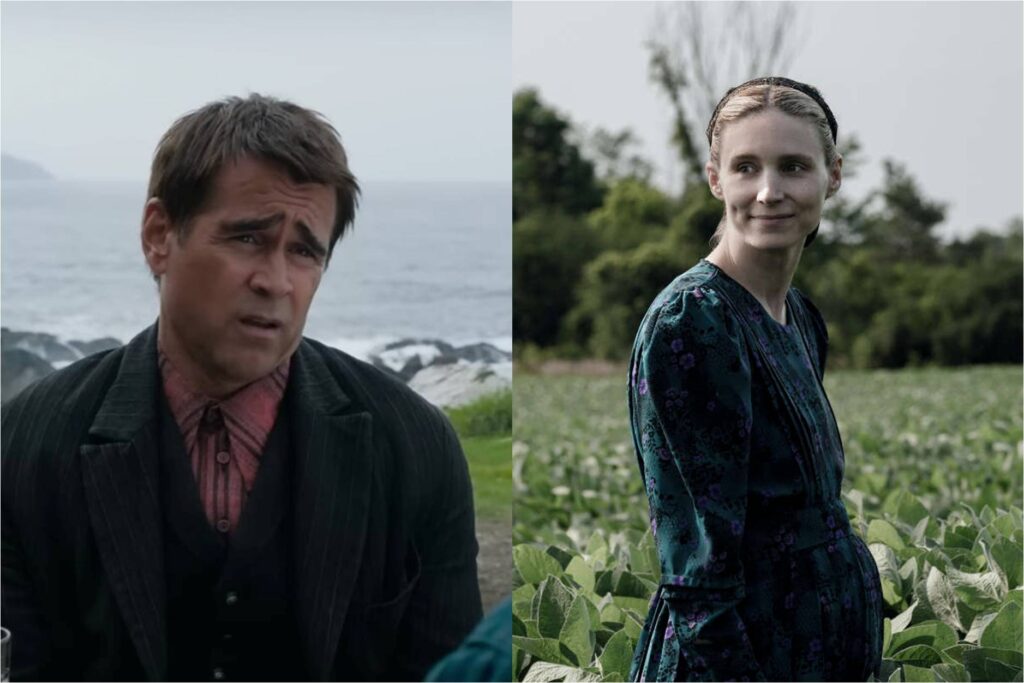
Our Oscars analysis marches on! Earlier today, we looked at the supporting actors; before that, we analyzed the techies. Now, it’s time to consider the writers.
BEST ORIGINAL SCREENPLAY
NOMINEES
The Banshees of Inisherin—Martin McDonagh
Everything Everywhere All at Once—Daniel Kwan and Daniel Scheinert
The Fabelmans—Steven Spielberg and Tony Kushner
Tár—Todd Field
Triangle of Sadness—Ruben Östlund
WILL WIN
So just how many Oscars is Everything Everywhere All at Once going to win? It received 11 nominations (two in one category), but realistic estimates can range anywhere from 3 to 8. (I personally have it pegged for six.) The breadth of its reach will likely determine this category, where it’s engaged (at least in my eyes) in a head-to-head competition against The Banshees of Inisherin. In a vacuum, I’d lean slightly toward Banshees, simply because it’s the more writerly conceit. But Everything Everywhere’s restless imagination might also catch voters’ attention, and besides, this race isn’t taking place in a vacuum; both of these movies received plenty of nominations, but only one is a juggernaut. I’m picking Everything Everywhere.
SHOULD WIN
Loaded field here, even if I think Triangle of Sadness lies a notch below the rest in light of the obviousness of its satire. As much as I admire the others—the sweet sadness of Banshees, the ceaseless invention of Everything Everywhere, the wide-ranging rigor of Tár—I’m taking The Fabelmans. The logline of “Steven Spielberg writes movie about how Steven Spielberg grew to love movies” would seem to be unbearably solipsistic, but The Fabelmans approaches its seemingly self-indulgent material with remarkable degrees of insight and nuance. Some of that, of course, lies in Spielberg’s camera, but the empathy also comes through on the page.
MOVIEMANIFESTO’S BALLOT
Barbarian—Zach Cregger
Broker—Hirokazu Kore-eda
Emily the Criminal—John Patton Ford
The Fabelmans—Steven Spielberg and Tony Kushner
Turning Red—Julia Cho and Domee Shi
Barbarian is the rare horror movie that features genuine surprises, and which smuggles its trenchant themes into its scares without sacrificing suspense. Broker balances a busy plot with intimately detailed characters. Emily the Criminal is a voluble middle finger. Turning Red is wonderfully imaginative and also generously real.
MovieManifesto’s winner: The Fabelmans—Steven Spielberg and Tony Kushner.
BEST ADAPTED SCREENPLAY
NOMINEES
All Quiet on the Western Front—Edward Berger, Lesley Paterson, and Ian Stokell
Glass Onion—Rian Johnson
Living—Kazuo Ishiguro
Top Gun: Maverick—Ehren Kruger, Eric Warren Singer, and Christopher McQuarrie
Women Talking—Sarah Polley
WILL WIN
When prognosticating here, it’s better to think of “Best Screenplay” as equivalent to “Most Screenplay.” In other words: Which movie contains the most dialogue? Here, the title gives the game away. I’ll go with Women Talking.
SHOULD WIN
Glass Onion. I tend to be cautious in this category because I’m rarely familiar with the source material (which is kind of a key criterion when it comes to judging adaptations), but Rian Johnson’s sorta-sequel is easily the smartest and most engrossing movie of the bunch. (It’s also closer to an original screenplay than an adapted one, but that’s a different conversation.)
MOVIEMANIFESTO’S BALLOT
Glass Onion—Rian Johnson
God’s Country—Julian Higgins and Shaye Ogbonna
Happening— Marcia Romano and Audrey Diwan
Living—Kazuo Ishiguro
She Said—Rebecca Lenkiewicz
God’s Country is streaming on AMC+ if you want to watch a good movie. So is Happening, whose visceral intensity camouflages its underlying intelligence. Living is a charmer with some playful structural loops. She Said isn’t fancy, but it approaches its subject matter with scrupulous sobriety.
MovieManifesto’s winner: Glass Onion—Rian Johnson.
Coming tomorrow: the lead actors.
Jeremy Beck is the editor-in-chief of MovieManifesto. He watches more movies and television than he probably should.
